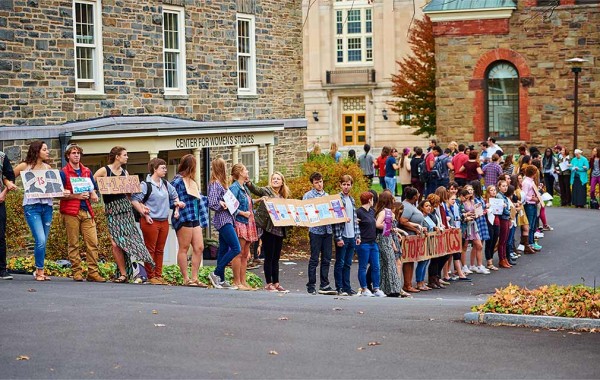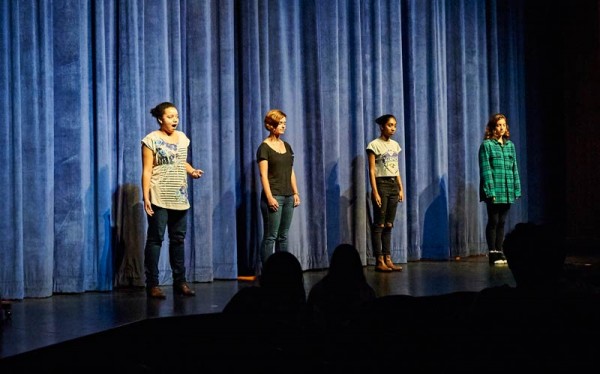In recent months, college students across the country have been confronting societal problems such as race relations, climate change, and sexual violence with protests and sit-ins. As the fall semester wound to a close, I began reflecting upon this new wave of student activism, through the lens not only of my 20 years of working in student development, but also of our experiences here at Colgate. A rally and speak-out for change regarding issues of sexual violence on campus this fall, following last year’s weeklong sit-in for racial justice, were manifestations of long-standing issues that Colgate must face — and has been facing, head on, in many ways.
Over the past year, Colgate students have shown that they have an intensity of commitment to political action that mirrors the intensity of their academic commitment. Whether protesting race relations or sexual climate, our students have demonstrated their passion and their desire to create a better Colgate. Their idealism, organization, and courage have caused many to examine important aspects of our campus community; we have seen professors, staff members, and students take the initiative to make positive change happen. Student activists also inspired the university’s leadership to redouble our ongoing efforts to make our educational experience as inclusive and healthy as possible.
Like other schools in America, Colgate must face the reality of sexual violence. This is an ethical and legal obligation, and our response is shaped by the current legal landscape. The state requires that we use its definition of sexual assault, and the U.S. Office of Civil Rights requires that we use a “preponderance of evidence” standard in determining responsibility. Colgate’s Equity Grievance Policy (EGP) and process, adopted in 2012, adheres to Title IX standards; it is built on the concept of positive consent by all participants in a sexual activity that is knowing, voluntary, and includes clear permission by word or action. Our policy was revised in 2014 to comply with the new Violence Against Women Act and again in 2015 in accordance with New York State’s Enough is Enough law (learn more at notalone.gov).
As dean of the college, I am keenly aware of the need for responses to sexual violence that are both empathetic and rational. Our efforts focus on an action plan that includes prevention programming (colgate.edu/sexualviolenceprevention); increased staff and programmatic support for survivors; and enhanced training for students, staff, and faculty. In December, we undertook an external review of our prevention and support services to identify areas of strength and room for improvement. At Interim President Jill Harsin’s request, I am chairing a task force of professors, administrators, and students that is charged with refining our plan based on those recommendations.
We’ve built points of agreement for the shared goal of a safe and inclusive community. We’ve created an accountability structure for the commitments that Colgate has made, and road maps that include public communication at regular intervals.
I am proud of how deeply and fully our community has engaged in building solutions to issues such as the serious problem of sexual violence.
Campus activism is a sign that Colgate is a strong, intellectually engaged university where students are taking on difficult challenges. The way in which a school responds to student protests affects its ability to address the issues that spark them. As a dean, I am committed to sustained dialogue as a pathway to collaborative problem solving: engaging students with respect, seriously listening to their concerns, and facilitating reasonable and decisive action aimed at making Colgate better for all. Talking with students about their concerns gives us an opportunity to model liberal arts learning in its purest form, with members of the community in discussion on an important and relevant issue, developing solutions to problems, and communicating with care and respect.
All this is not to say that Colgate has all of the answers on this issue, or others; but rather, we have taken an approach — grounded in principles of human dignity and mutual respect — that allows us to face our issues together, as a community.








